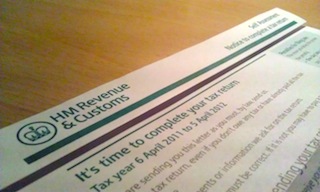Why banks won’t lend to a business – Crunchers, Accountants Edinburgh
At Crunchers, Accountants Edinburgh, we often have clients that are looking for small business funding, to allow them to expand and grow their business. How to obtain small business funding is a common concern for new businesses and for those business owners looking to grow their business.
Getting approved for a business loan seems to be more difficult than qualifying for a personal loan. As a result, it’s crucial that small business owners looking for small business funding, or trying to secure a small business loan, need to be adequately prepared to meet with a small business lender to present their business in the best possible light and qualify for the money they need.
Here’s what you can do to streamline the loan approval process for your small business.
Your business risk profile
One of the most important parts of any business loan application is demonstrating to a lender that your company is able to make regular payments and repay the loan in full. If your business is profitable, you can show you’re a low risk by presenting cash flow statements, a detailed business plan, and of course, your good credit history. Some of the most common reasons a bank won’t grant a loan to a small business are a lack of security (e.g. no business assets), a poor or non-existent credit history, business inexperience and/or a weak business plan.
Know your credit score
It’s highly recommended that you review your credit score before you apply for financing. That way you’ll know whether it might be better to wait until you’re in a better position to qualify. Check that your report is complete or free of any errors that can affect your score. Your credit report includes your payment history for credit cards, equipment leases, mortgage or office rentals, electricity, phone fees and other business expenses. A simple omission – say your internet provider, whom you always pay on time, isn’t included in your payment history – can result in your credit score being lower than it should be, so be sure to correct any errors immediately.
Before you apply for financing
If you suspect a lender will decide your business is too high risk for a loan, or you’ve been denied financing, apply for business credit instead. Your spending limit may be low to begin with, but a credit card will give you that opportunity to build a good credit history. Pay off your balance – or, at the very least, make your minimum payment each month. Keep up with your other financial obligations, too, such as any personal loan payments, rent, leased equipment and any income taxes owing. Apply for a small business loan in six months to a year and you’ll have a much better chance of approval.
Before you apply, be sure you have all the documentation needed to support your loan application. Include in your portfolio copies of business banking statements, financial reports, a detailed business plan including projections and a well-researched marketing plan.
You should also be prepared to discuss with a lender why you need to borrow the amount you’re asking for, the length of term and how your business can afford to repay it. Make a strong case for funding by demonstrating profitability, a good credit history and a solid business plan, and you’ll be in an excellent position to qualify for the funds you need to grow your business.
Remember as Edinburgh Accountants, if you want help and assistance in securing that small business loan, then please get in touch.
Crunchers – Accountants Edinburgh
© Photo Credit Cindy Shebley


